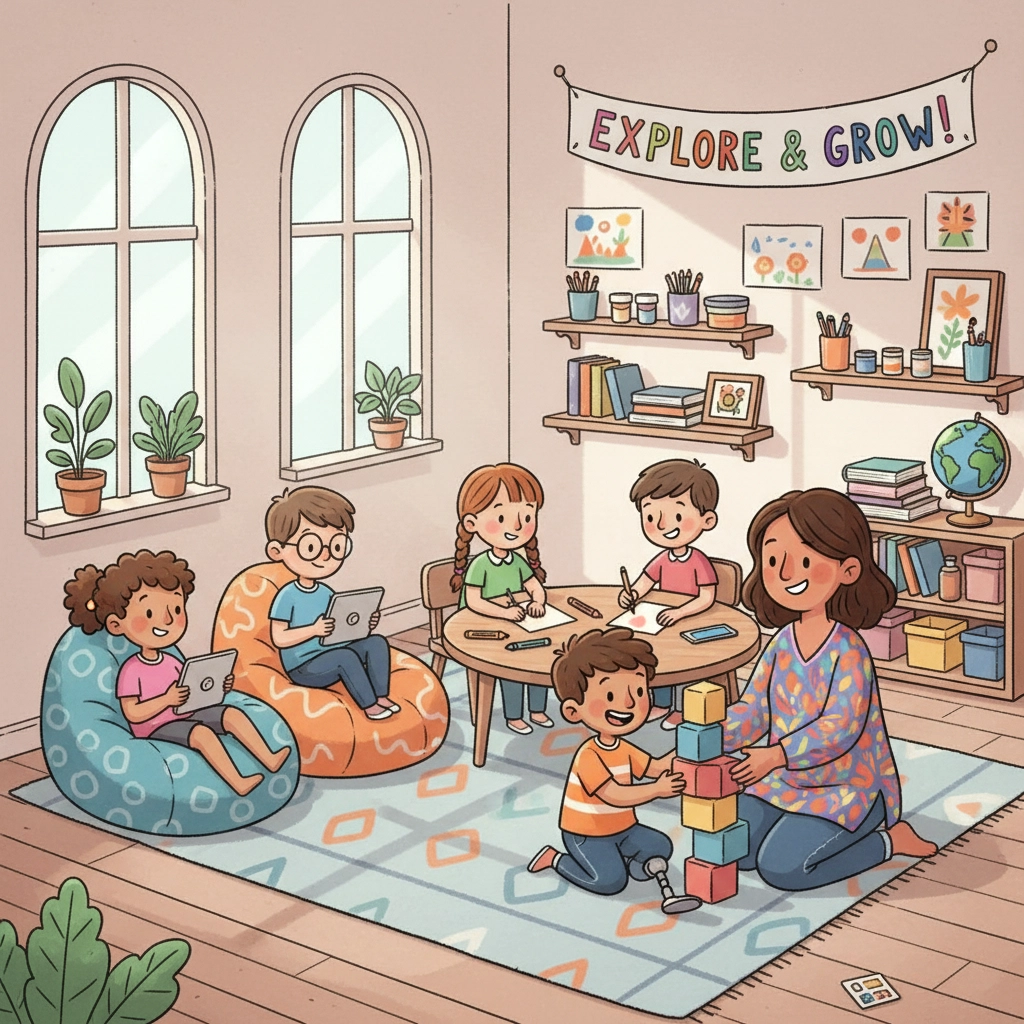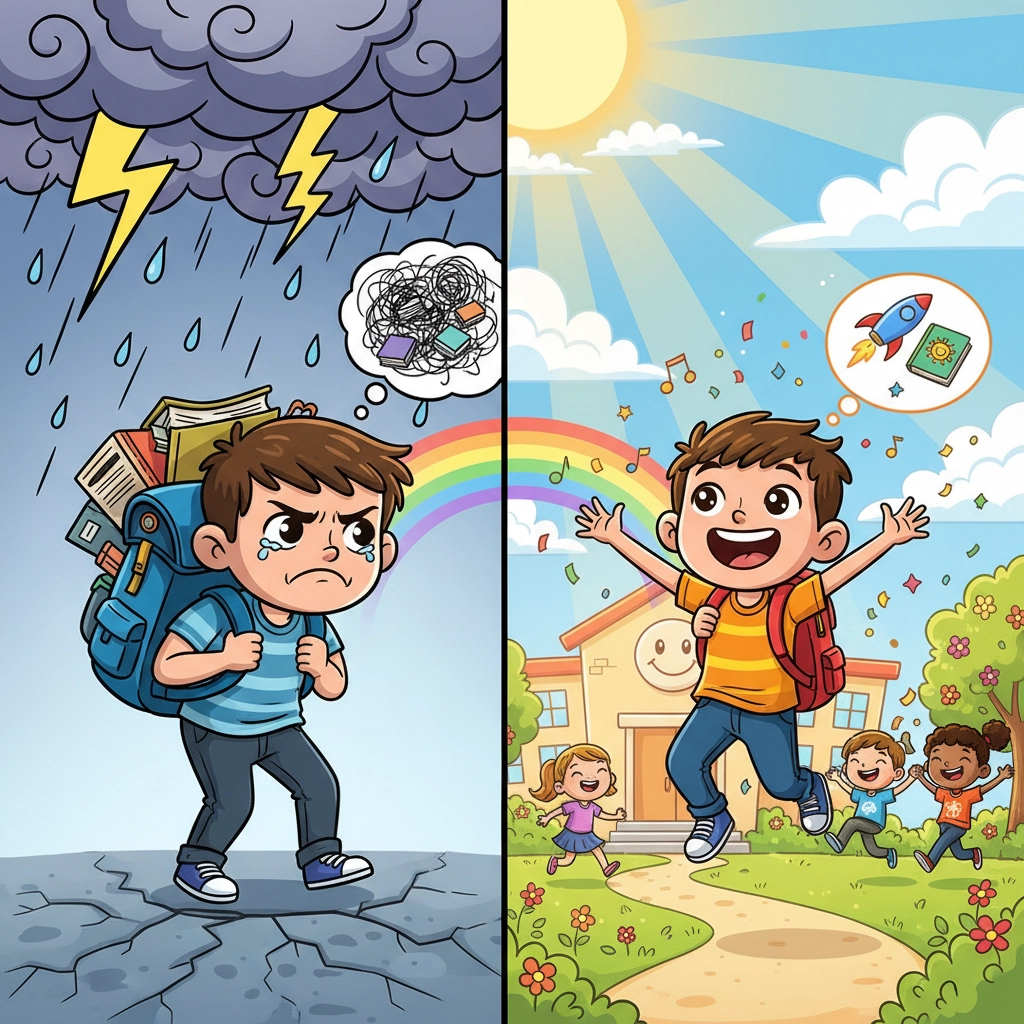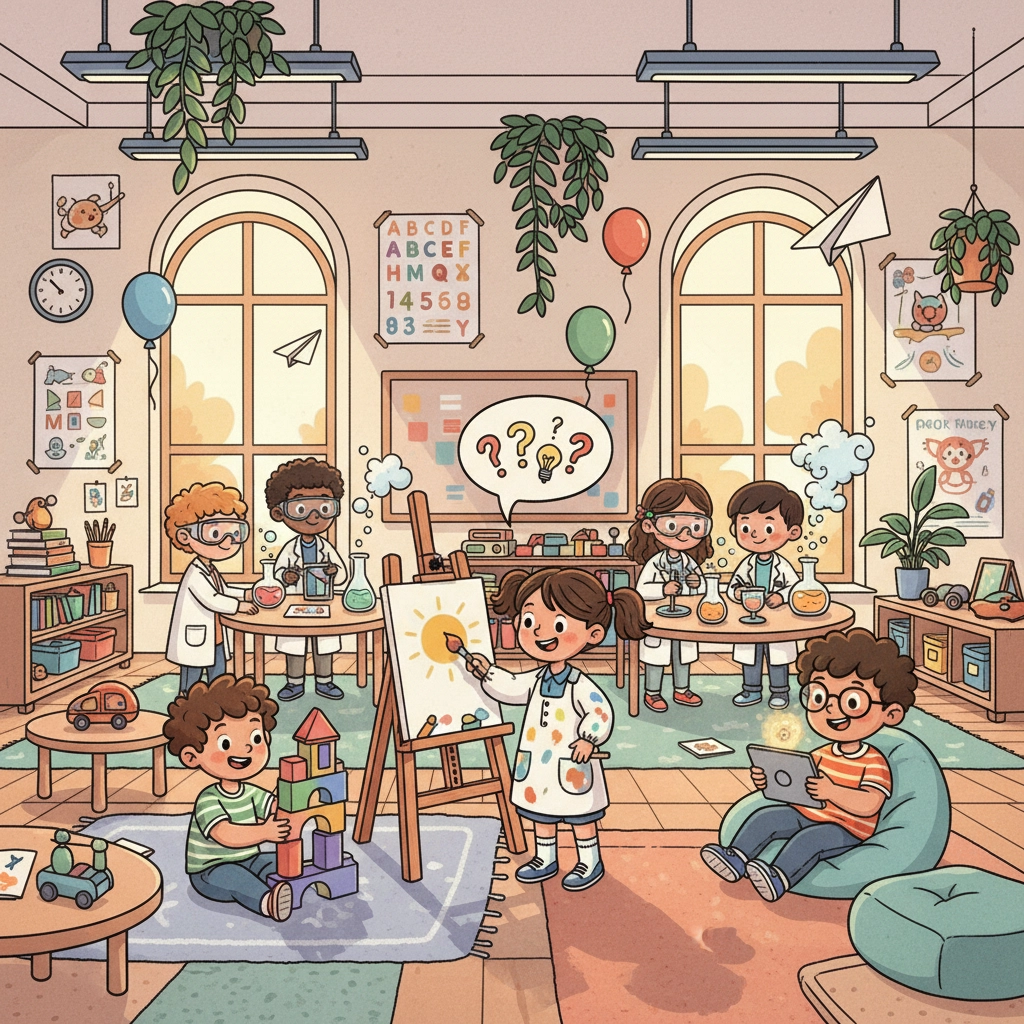7 Signs Your Child Needs Alternative Education Solutions (And How to Find the Right Fit)
- Teresa Bakkar
- Oct 2, 2025
- 5 min read
As parents, we all want our children to thrive in school. But what happens when traditional schooling just isn't working? Perhaps you've noticed your once-eager learner dragging their feet each morning, or maybe you're receiving frequent calls from the school about behavioral issues. If any of this sounds familiar, you're not alone, and more importantly, you have options.
Recognizing when your child needs a different educational approach isn't about admitting failure; it's about understanding that every child learns differently. Let's explore seven key signs that might indicate your child would benefit from alternative education solutions, plus practical guidance on finding the perfect fit for your family.
1. Your Child Shows Persistent Behavioral Issues at School
When children consistently struggle with classroom expectations or frequently act out, it's often their way of saying something isn't working. These behavioral challenges rarely happen in isolation: they're usually signals that your child feels frustrated, overwhelmed, or misunderstood in their current environment.
Traditional classrooms can feel restrictive for kids who need more movement, different pacing, or simply a fresh approach to learning. Alternative education environments typically focus on understanding the whole child rather than just managing behaviors. They often provide smaller class sizes, more individualized attention, and teaching methods that address the root causes of behavioral challenges rather than just the symptoms.

2. They've Lost Interest in Learning
Remember when your child used to ask endless questions about everything? If that natural curiosity has dimmed and homework has become a nightly battle, it might be time to consider alternatives. Loss of interest in learning is one of the most heartbreaking signs that traditional schooling isn't meeting your child's needs.
This often happens when children feel disconnected from what they're learning or when the curriculum doesn't align with their interests and learning style. Alternative education approaches frequently use project-based learning, real-world applications, and student-driven exploration that can reignite that spark of curiosity we all want to see in our kids.
3. Social Struggles or Bullying Are Affecting Their Well-being
Social challenges can make or break a child's school experience. If your child is dealing with bullying, social isolation, or anxiety around peer interactions, their academic performance and emotional health will inevitably suffer. Middle school years can be particularly tough socially, and some kids just need a different environment to flourish.
Alternative schools often create smaller, more close-knit communities where children can develop genuine friendships and social skills in a supportive atmosphere. When students feel emotionally safe and socially connected, learning becomes so much easier.
4. Physical Symptoms Reveal School-Related Stress
Pay attention to what your child's body is telling you. Does your child fight to stay home most mornings? Do they frequently complain of headaches or stomach aches on school days? Maybe they leave for school in a good mood but consistently come home upset or withdrawn.
These physical symptoms often indicate deeper educational misalignment. When children dread school to the point where their bodies rebel, it's time to seriously consider whether their current educational setting is serving them well.

5. Special Learning Needs Aren't Being Adequately Supported
Children with ADHD, dyslexia, autism, or other learning differences often struggle in traditional settings that aren't equipped to accommodate their specific needs. If your child has an IEP or 504 plan but you're still seeing minimal progress or continued frustration, they might benefit from an environment specifically designed for diverse learners.
Alternative schools are typically better prepared to offer truly individualized support, with flexible curricula, sensory-friendly environments, and staff trained to work with all types of learners. Every child deserves to feel successful and supported in their educational journey.
6. Your Highly Creative or Gifted Child Feels Stifled
Does your child constantly ask "why" and love exploring ideas that go way beyond textbooks? Are they passionate about art, music, technology, or other creative pursuits but feel constrained by rigid curricula? Highly creative and gifted children often find traditional school structures limiting rather than liberating.
These students need environments that encourage rather than box in their creativity. They thrive when they can dive deep into subjects that fascinate them and when their unique perspectives are celebrated rather than seen as disruptive.
7. They Learn Best Through Hands-On or Independent Methods
Some children are natural independent learners who work best at their own pace, diving deep into subjects that interest them. Others learn through doing rather than sitting at desks listening to lectures. If your child comes alive during lab time, field trips, or hands-on projects but struggles with traditional classroom instruction, their learning style might be calling for something different.
Alternative education often provides the flexibility these learners need: whether that's through project-based curricula, outdoor education, or self-paced online programs that let students take ownership of their learning journey.

How to Find the Right Alternative Education Fit
Now that you've identified potential signs, how do you find the right solution? The good news is that there are more options available today than ever before.
Start with Open Communication
Before making any major changes, have honest conversations with both your child and their current school. Understanding exactly what's not working can help you identify what to look for in an alternative. Sometimes, small adjustments within the traditional system can make a big difference.
Explore Your Options
Online Schools: Virtual learning environments like Encourage Online Academy offer flexibility and personalized pacing while still providing structured curricula and certified teachers. This option works especially well for self-motivated learners or families who need more flexibility due to work schedules or frequent moves.
Charter Schools: These publicly funded schools often offer smaller class sizes, innovative teaching methods, and more individualized attention while maintaining academic rigor.
Montessori and Alternative Teaching Schools: These environments emphasize student-led learning, hands-on exploration, and often replace traditional testing with portfolio-based assessments.
Homeschooling: This gives you complete control over your child's education, from curriculum choice to daily schedules. Research your state's requirements to ensure proper documentation and future educational opportunities.
Consider Your Child's Specific Needs
Think about what your child needs most: More individual attention? A different pace? Specialized support for learning differences? A more creative environment? Understanding these needs will help you narrow down which alternatives might work best.
Trust the Process
Finding the right educational fit might take some trial and adjustment, and that's perfectly normal. Stay in close communication with your child about how they're feeling and performing in any new environment. Remember, you can always make changes if something isn't working out.
Moving Forward with Confidence
Choosing alternative education for your child takes courage, but it also shows incredible love and advocacy. You're recognizing that your child is unique and deserves an educational experience that honors their individual needs and learning style.
Whether you're considering online learning opportunities or exploring other alternatives, remember that there's no one-size-fits-all solution in education. What matters most is finding an environment where your child can thrive academically, socially, and emotionally.
The goal isn't to find a perfect school: it's to find the right school for your unique child. With patience, research, and open communication, you can discover an educational path that reignites your child's love of learning and sets them up for long-term success. Your child's future is bright, and taking this step shows you're committed to helping them reach their full potential.
